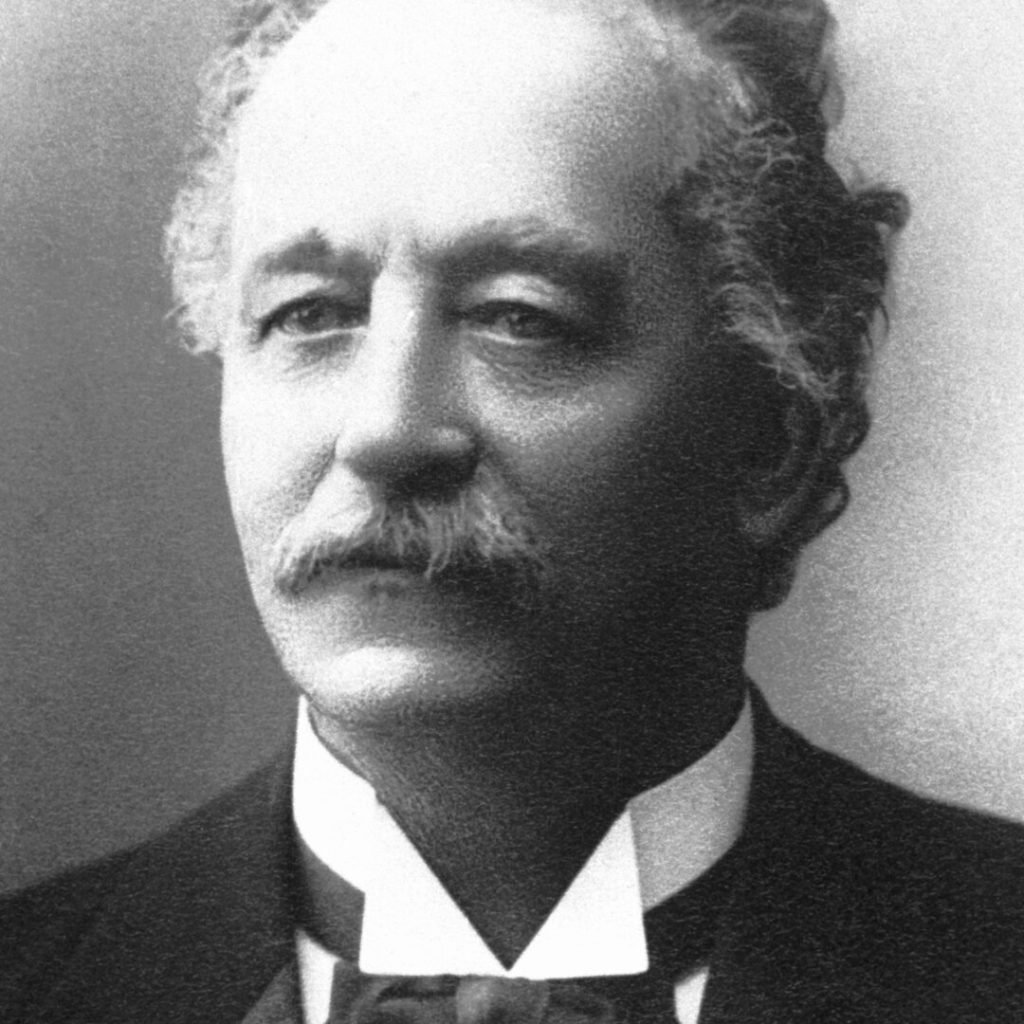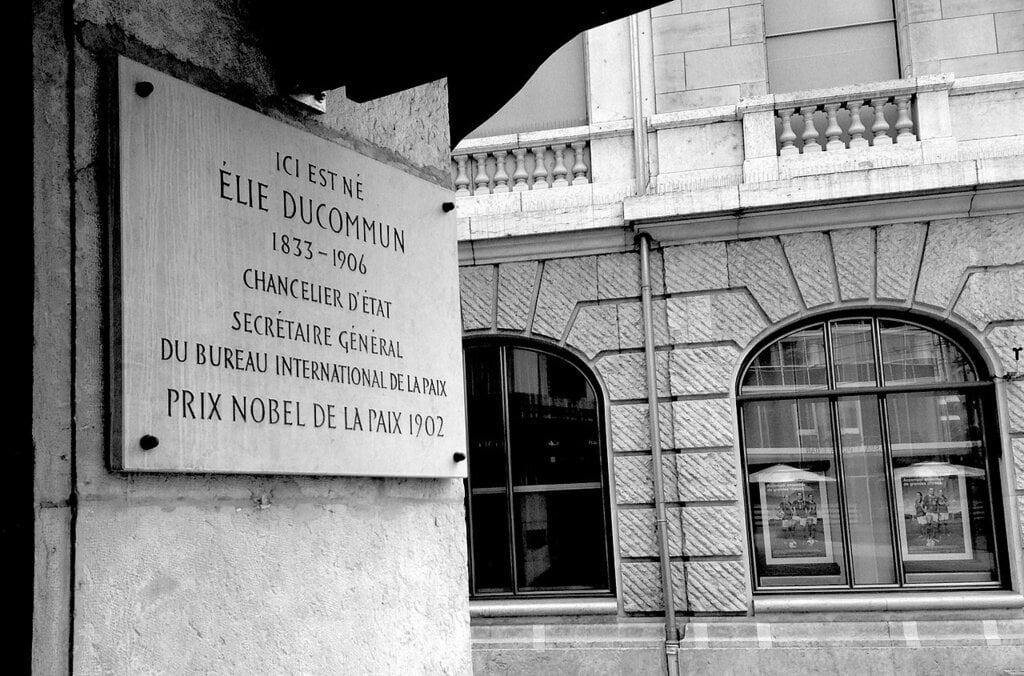Élie Ducommun
Speed read
Élie Ducommun was awarded the Nobel Peace Prize for his untiring and skillful directorship of the International Peace Bureau. He shared the prize with Charles Albert Gobat.

Full name: Élie Ducommun
Born: 19 February 1833 in Geneva, Switzerland
Died: 7 December 1906 in Bern, Switzerland
Date awarded: 10 December 1902
Idealist in the cause of peace
Èlie Ducommun was the director of the Swiss Jura-Simplon Railway. He maintained that modern communications helped to tie nations together in a manner conducive to peace. Ducommun served without remuneration as secretary-general of the International Peace Bureau in Bern, which linked peace organisations in Europe and the USA. Ducommun prepared programmes for international peace conferences, publicised resolutions and corresponded with friends of the peace movement. In his view, people could be educated to choose peaceful solutions and wars could be prevented through international arbitration. He was awarded the Nobel Peace Prize for his activities at the International Peace Bureau, but his life’s work was varied. A teacher in his younger years, he also served as a prominent liberal democratic politician.
"You Swiss, with your sense of life's realities, have a special gift for taking ideas from the realm of dreams and turning them into realities."
Jørgen Løvland, Chairman of the Nobel Committee, Toast, 16 May 1904.
Proponent of compromise
“The mind and heart of the peace movement.” This is how 1901 peace prize laureate Frédéric Passy described his friend, Élie Ducommun. A master in the art of reconciliation, Ducommun’s energy, thoroughness and organisational skills were widely known. Views could differ widely at the international peace conferences, but Ducommun listened and often proposed compromises that most members were willing to accept. His colleagues in the peace movement also listened to him at banquets as he spoke with humour and sensitivity, often employing his own poetry to convey his message of peace.
"One question often asked of pacifists is: Granted that war is an evil, what can you find to put in its place when an amicable solution becomes impossible? The treaties of arbitration concluded in the past few years provide an answer to this question …"
Élie Ducommun, Nobel Prize lecture, 16 May 1904.
Abrams on Ducommun
The American Nobel expert Irwin Abrams had a special admiration for particular peace prize laureates. Their lives and achievements were an inspiration to others. In particular, he focused upon Ducommun in one of his essays. Abrams was not only moved by Ducommun’s lifework, but also by his ability to express himself using poetry. The following lines by Ducommun demonstrate the conviction that distinguished the peace prize laureate throughout his life:
“To live not for oneself,
but for others
This is the happiness here below.”

Learn more
Elie Ducommun, Swiss journalist, eloquent lecturer, business executive, steadfast advocate of peace, was born in Geneva, the son of a clock maker. Ducommun was the honorary Secretary-General of the International Peace Bureau in Berne from its establishment in 1890 and until his death ...
Disclaimer: Every effort has been made by the publisher to credit organisations and individuals with regard to the supply of photographs. Please notify the publishers regarding corrections.
Nobel Prizes and laureates
Six prizes were awarded for achievements that have conferred the greatest benefit to humankind. The 14 laureates' work and discoveries range from quantum tunnelling to promoting democratic rights.
See them all presented here.
